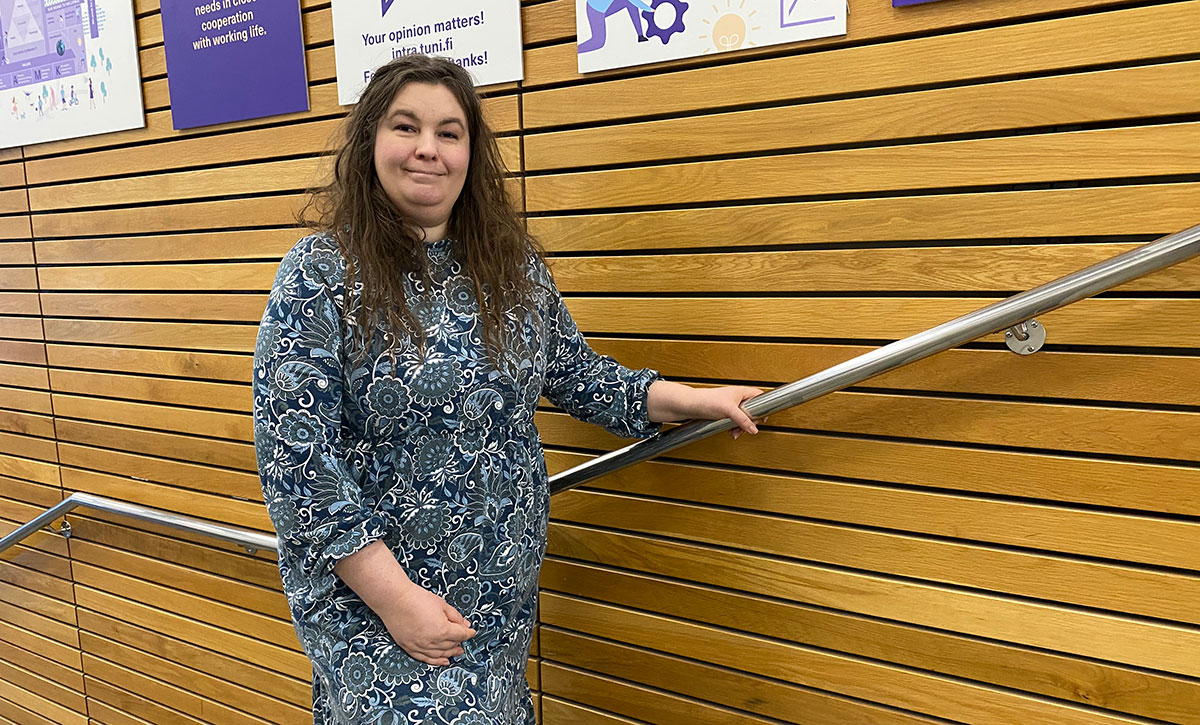Big data masses pile up in organisations. They need to be stored, disseminated and used ethically and fairly. Fair data has been on the surface for a long time but universities of applied sciences have not paid much attention to it. The novelty value of the FairDatAct project can be seen through concrete cases.
“Data-based value creation is interesting and involves many unsolved issues. We can organise our operation around artificial intelligence and big data”, says Project Manager Katri Salminen.
The FAIR principles are an important part of open science. According to the principles, data must be findable, accessible, interoperable and re-usable.
”We want to identify things which we can build on”
The project participants are TAMK’s four schools: School of Industrial Engineering, School of Social Services and Health Care, School of Built Environment and Bioeconomy and School of Business and Media. They already use data and artificial intelligence.
There is however need for profiling. Salminen tells that the project clarifies the message of what we can do with data now and in the future.
“We identify similarities and our readiness level. We outline our strong competence, what we have done and to what direction we can develop it inside and between the schools.”
Towards practice
The project includes three different cases which involve data use. Data and information management are harnessed for the cases.
The manufacturing industry case focuses on building an Internet of Things environment and using data in varying manufacturing industry applications. The building services engineering case tackles reduction of carbon dioxide emissions in construction and use of buildings. The objective is to set the emissions to zero by 2050. In the health care field, most data is personal data and thus fair and ethical data education and competence need to be increased.
“We will study what the cases have in common, what fair data requires from us and are we up to it.”
Interest groups also participate in value creation
Companies also benefit from the profiling. Salminen sums the project objectives.
“Multidisciplinary competence means that we create concrete examples of data collection, analysis and use in an ethically acceptable way for companies of different fields”, Salminen states.
The aim is to open new research, development and innovation possibilities. TAMK prioritises innovations in order to respond to business and working life needs even better.
An objective is also to teach new data economy skills and invest in them. We should also establish a strong cooperation network in fair data.
“We will work on these themes together with our interest groups. We want to support our interest groups, network and internationalise further. We will organise workshops during the project to establish companies’ and other interest groups’ big data and artificial intelligence needs.”
The Building a Competitive Edge in a Fair Data Economy for Higher Education (FairDatAct) project takes place on 1 January 2023 – 31 December 2024. The project is funded by the Ministry of Education and Culture and TAMK.
Further information:
Katri Salminen
Project Manager
Tampere University of Applied Sciences
katri.salminen@tuni.fi
Text: Hanna Ylli
Photo: Minttu Rantanen


